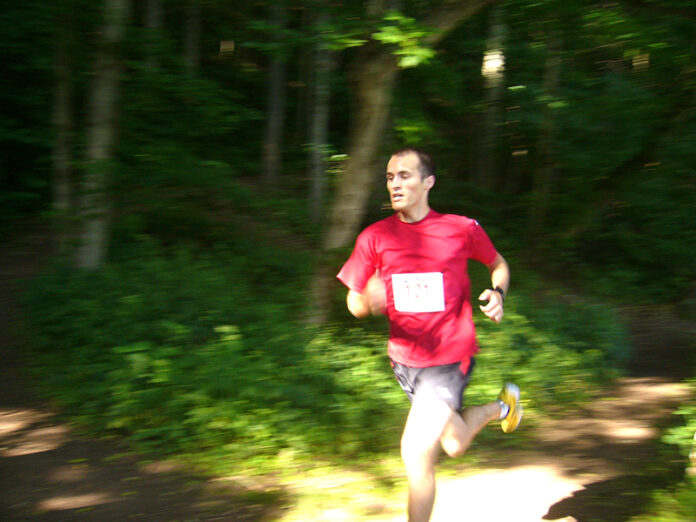
by Gene Marrano
There are lots of road and trail-runs around town, and many that support worthy causes, but only one raises money to help protect land – the Race for Open Space, which was held on June 4 at Green Hill Park in Roanoke County. The annual event is organized by the Western Virginia Land Trust, which educates property owners about the advantages of conservation easements that offer property tax breaks for those that agree to protect their land from future development. It’s an alternative to selling out to builders, in part because of the tax burdens.
The Western Virginia Land Trust also helps facilitate the conservation easement process and monitors easements already in place to make sure no encroachment or unauthorized building has taken place. The Race for Open Space, a 3K (2 mile) run began three years ago as a way to raise operating funds for the land trust, which receives little public money and has an annual budget of about $180,000.
About 100 runners finished the June 4 race. Land Trust Project Manager David Perry said the event might include a 5K run next year on a certified course already mapped out at Green Hill Park. “We’re not opposed to that at all,” said Perry.
The race is “a great way to bring a lot of people into the fold that wouldn’t know about the Land Trust otherwise,” said Perry, “[by] reaching out into the running community.” Racers have become donors and even sponsors, according to Perry.
Federal tax deductions and state tax credits are “a big motivation – the icing on the cake,” said Perry, especially for those that are “land rich but cash poor. They don’t have a lot of money in the bank because they inherited [property] from their family.”
Perry monitored timber cutting recently on a tract that had been placed in a conservation easement, just to make sure the clearing was within the parameters agreed to. In many cases the Roanoke-based organization defers to a larger state land trust group (the Virginia Outdoors Foundation) that will hold the actual easement.
That is a publicly funded group, which also means transaction fees for the property owners are lower. The state trust is supported by the Attorney General – meaning more clout if an enforcement issue comes up. The last two governors – Tim Kaine and now Bob McDonnell – set goals of preserving 400,000 acres of land during each of their administrations. Land Trusts can help with that effort.
“There’s always a lot of documentation [as well],” notes Perry of signed agreements that can wind up in court if development occurs on land that was supposed to be left unspoiled.
Easements are still being added in this area, 1-2 every year by the Western Virginia Land Trust, a few dozen by the Virginia Outdoors Foundation every year. Many of the property owners “don’t want to make a big deal about it,” said Perry, as opposed to a few high profile easements that surface from time to time. Those agreements often mean that property stays in the family, made less costly by tax breaks. “If we’re doing our job nothing changes,” said Perry, “the land looks the same.”
The Race for Open Space is one more tool in the arsenal, used to raise money and awareness for the cause. “[We’re] trying to make the land trust more important in people’s lives,” said Perry, “[so they realize] there are people out there trying to save what makes southwest Virginia special.”
Race for Open Space winners: top overall male finishers – Andrew Parkins, Salem, 10:15 (course record), Pat Bateman, Roanoke, 10:51, Michael Rawlings, Roanoke, 11:04. Top overall female finishers – Lynn Howard, Salem, 14:33, Kathleen Haugen, Salem, 14:55, Michelle Bouvier, Roanoke, 15:24.
Complete race results and information about the Land Trust at www.westernvirginialandtrust.org/race/

